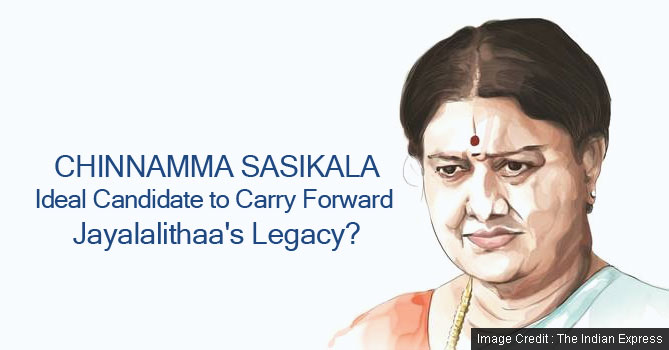
Wikipedia defines Moral Police as “a blanket term used to describe vigilante groups which act to enforce a code of morality in India”.
The fact that this term has been coined in, and for, our country, should be enough for us to hang our heads in shame. Unfortunately though, it is the ugly truth we proudly carry over our sanskari shoulders every day. The images of couples being beaten up, or shamed in parks, “obscene” art exhibitions being obstructed, pubs and bars attacked, are not rare at all.
In a country like ours, there is no shortage of people who think it is their responsibility to show everyone the “right” path. Never mind if it is truly right or not, never mind if “showing” translates to “forcibly imposing”. For a country that is quickly developing, eager to carry the “progressive” tag, we perhaps need to leave a few outdated ideas in the past.
India & Moral Policing
On October 13th 2018, a group of Hindu activists stopped a play about discovering gender identity, in Bengaluru. The reason? The play was titled “Shiva”, based on the name of the protagonist; and coincidentally, also the name of one of Hindu religion’s most worshipped deity. The activists warned that there would be dire consequences if the play was run. Upon being asked whether they have seen the play, they said no, declaring that it was the name that offended them.
This was not the first time expression was stifled by extremists, however. For example, in 2015, a Delhi University play titled “Welcome to the machine” was disrupted because of allegedly spreading hatred towards the Hindu religion. It is important to note that, by “extremists”, we do not point towards any particular community, or religion. It merely refers to any organisation or individual that tries to curb down anything that doesn’t match their ideology, declaring it “anti-national” or against our values.
Section 294 of the Indian Penal Code
Section 294 of the IPC is one of the most frequently used weapons by the moral police to justify their terror. The law deals with matters relating to obscenity.
“Whoever to the annoyance of others;
(a) Does any obscene act in any public place, or
(b) Sings, recites or utters any obscene song, ballad or words, in or near any public place,
Shall be punished with…”
Interestingly, however, the law does not define in clear words what is meant by the term “obscenity”. This leaves a large grey area, both for the accused, as well as the accuser. However, it is often the latter that take the most advantage of this ambiguity. And, why not? In a country like India, where we have been brought up in an environment that tells us the society is supreme, it is very easy for the same to overpower us. And, who are the spokespeople of the society? Our moral police, of course.
Why the moral policing?
Talking about the Bengalore play incident, one of the senior directors said, “Our tradition teaches tolerance… Regrettably, over the years, tolerance has been replaced by the rising menace of intolerance which strikes at various fields of human endeavor and creativity: writings, music, drama, paintings and movies”. True, for art is our greatest form of expression, also, of our humane traits. Lest we are allowed to practice our art the way we want, a collective nation cannot make significant progress, nor preach liberty.
Moreover, we witness a lot of attacks on the alleged western influences the country is “threatened” by. Couples in public become an easy target for goons to bully. The Bajrang Dal activism around Valentine’s day every year, might be a source of joking around for us; but is very much an ugly truth.
In 2009, a pub in Mangalore was attacked by Sri Rama Sena activists, beating up a group of young men and women present there. They claimed that the women were violating traditional Indian values. Looking collectively at all these incidents, one is forced to ask- why the moral policing? What gives somebody the right to harass peace-maintaing individuals, based on gibberish arguments?
An opinion
In general language, one may define obscene as- “offensive or disgusting by accepted standards of morality and decency”, again leaving a lot undefined. Both morality and decency are subjective terms. Moreover, taken in a societal context, the interpretation of both the words need to evolve with the passage of time.
What might have been indecent a century ago, does not remain so now. For example, women walking around in jeans in the 19th century, or the early 20th century would have considered “obscene”. But, would it be right to declare so even now? Certainly not. Therefore, the opinion of extremists should not and cannot be taken as the base for defining what violates public decency, and what doesn’t.
It is equally important to remember that somebody having a different opinion than yours, does not automatically become wrong. The so-called “torch-bearers of morality” in our country are often the ones that infuse terror the most, and disrupt peace.
Conclusion
When we talk about being a modern nation, we must first weigh in on how much liberty an everyday citizen of the country enjoys. Certainly, with the dark cloud of moral policing looming over our heads, the answer is a negative one. Should we not then, question our outdated values, and do away with some of them? Yes, murdering somebody was just as wrong yesterday, as it is today; or even mistreating somebody. But, well-informed adults choosing how to lead their lives, or artists peacefully showcasing their work- without wrongfully enticing anybody- definitely do not come under the category of those who “bring shame to the nation”.
Going away with a food for thought, I ask you a question-
One foot in the past, the other ambitiously in the future- what way to move forward is this?




